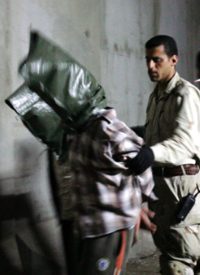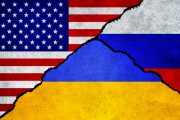
On October 22 the Internet-based whistleblower organization WikiLeaks published some 391,000 classified U.S. military documents on the Iraq War. WikiLeaks alleges the documents prove that the U.S. government continued to look the other way to Iraqi government torture through the end of the first year of the Obama administration and that civilian casualties in the Iraq war were much higher than publicly documented.
“It really is the most extraordinary compendium of war that has ever been released,” WikiLeaks founder Julian Assange told the Australian Broadcasting Company as the documents, named the “Iraq War Diary,” were released.
The reports document that the Iraq war has been five times as bloody as the Afghan war, and according to the USA Today for October 22, “include deaths unknown or unreported before now — as many as 15,000 by the count of one independent research group,” Iraq Body Count.
Then-National Security Adviser James L. Jones claimed back in July that WikiLeaks’ massive leak of U.S. military documents on the Afghan war “could put the lives of Americans and our partners at risk, and threaten our national security.” But since then the White House has been silent about any actual deaths of American soldiers, informants, or allied soldiers who were killed or endangered as a result of the July WikiLeaks “Afghan War Diary” release.
President Obama echoed Jones’ concerns about the Afghan war leak of approximately 90,000 documents back in July, telling the press that “I’m concerned about the disclosure of sensitive information from the battlefield that could potentially jeopardize individuals or operations. The fact is, these documents don’t reveal any issues that haven’t already informed our public debate on Afghanistan.” But news of the higher-than-previously-reported body count, some 60-80 percent of which are civilian non-combatant deaths, in the “Iraq War Diary” means that President Obama can’t credibly maintain the same objections to the current WikiLeaks release.
This is not to say that Obama’s orginal argument that the Afghan WikiLeaks didn’t reveal any new information to the American public ever held water. The July leak of Afghan war documents revealed for the first time that the Pakistani intelligence services, the ISI, had been complicit in aiding the insurgents even while U.S. agencies aided Pakistan with billions in foreign aid and technical assistance.
Moreover, the WikiLeaks release did not catch the U.S. government by surprise; the government’s Voice of America reported October 22 that a “120-member task force has been working in secret for months.”
According to WikiLeaks, “The 391,832 reports (‘The Iraq War Logs’), document the war and occupation in Iraq, from 1st January 2004 to 31st December 2009 (except for the months of May 2004 and March 2009) as told by soldiers in the United States Army. Each is a ‘SIGACT’ or Significant Action in the war. They detail events as seen and heard by the US military troops on the ground in Iraq and are the first real glimpse into the secret history of the war that the United States government has been privy to throughout.”
The U.S. government has reportedly attempted to silence WikiLeaks through its founder, Julian Assange, by seeking criminal indictments against him in several European countries. Assange was charged with rape by Swedish authorities back in August, a charge dismissed later that month. But Swedish authorities reopened their probe in September and refused Assange, an Australian national, residency October 18. Assange claims that the rape charge is phony and part of a pressure campaign by the U.S. government to stop the organization.
In addition, the WikiLeaks website had been down for several days on what the site listed as “scheduled maintenance” for days before the release, and search requests have occasionally overwhelmed the site since the release. The website is based in Sweden, which has strong press protection laws, so WikiLeaks’ leadership has remained outside the reach of U.S. criminal prosecutors. U.S. officials did arrest former U.S. Army intelligence analyst Bradley Manning in May, however, and media have speculated that Pfc. Manning was WikiLeaks’ source for the Afghan and Iraq war leaks. WikiLeaks has refused to disclose its sources.
Photo of Iraqi Army soldier escorting two hooded detainees: AP Images
Related articles:
WikiLeaks Condemned by Governments on Three Continents
WikiLeaks Documents Reveal Extent of Pakistani ISI Activity in Afghanistan
WikiLeaks.org Releases More More Than 90,000 Afghan War Secret Documents

